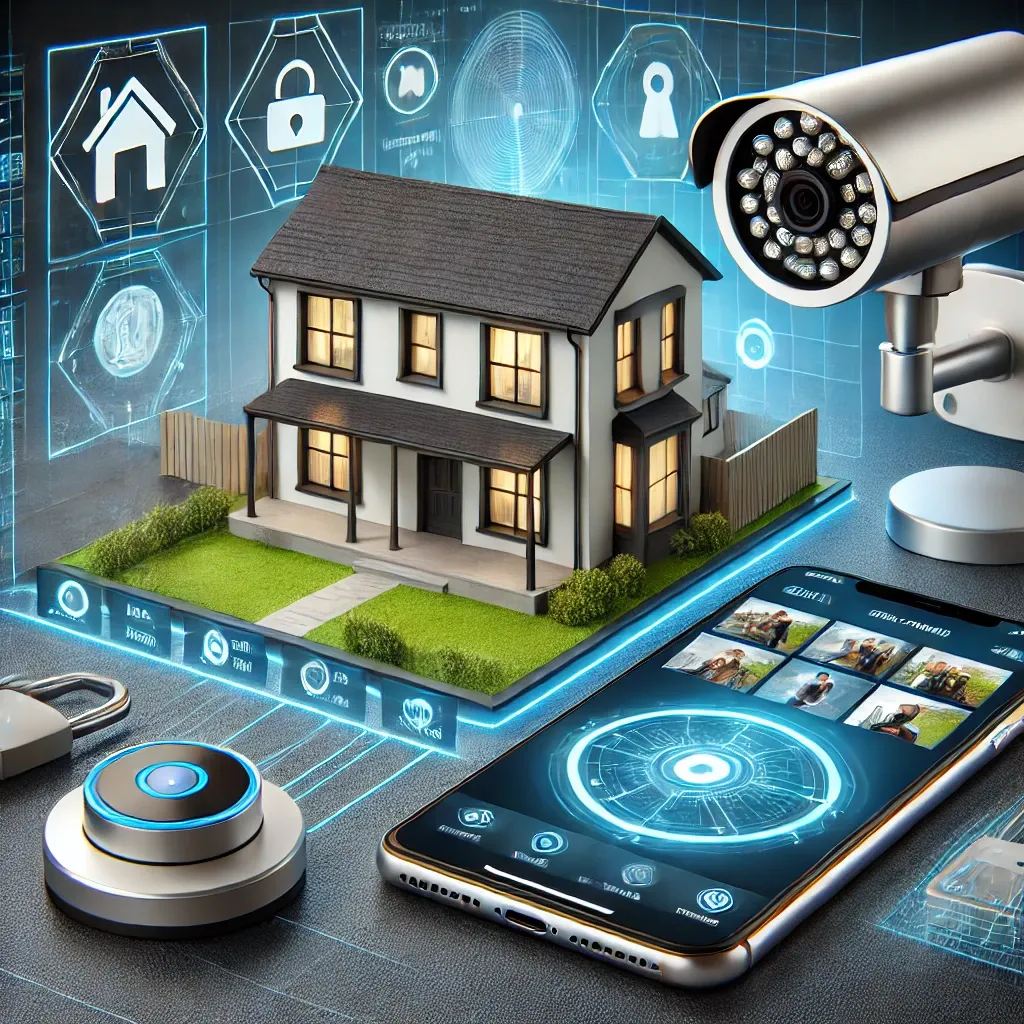The Latest Advances in Smart Home Technology
Introduction
Smart home technology has witnessed remarkable advancements in recent years, making life more convenient, efficient, and secure. A smart home is no longer a luxury but a necessity for those seeking intelligent solutions to save time and effort. In this article, we explore the latest innovations and technologies shaping the future of smart homes.
1. Artificial Intelligence in Home Automation
Artificial Intelligence (AI) has become a key player in smart homes, enabling advanced systems like Alexa, Google Assistant, and Apple HomeKit to control home devices through voice commands or smart applications. Recent developments include:
- Improved machine learning capabilities to understand user behavior and provide personalized recommendations.
- Enhanced multitasking abilities for voice assistants to handle multiple commands simultaneously.
- Deeper integration with home devices for a more seamless user experience.
2. Internet of Things (IoT) and Hyper-Connectivity
The Internet of Things (IoT) is the backbone of smart homes, ensuring seamless connectivity for devices to function efficiently. Key recent innovations include:
- Devices supporting faster and more secure communication protocols like Matter and Thread.
- Improved interoperability, allowing devices from different brands to work together effortlessly.
- New energy-efficient technologies that reduce power consumption in smart devices.
3. Advanced Security Systems
Smart home security systems have evolved significantly, incorporating modern technologies to enhance safety and convenience. The latest advancements include:
- Smart surveillance cameras: AI-powered video analysis detects unusual activities in real-time.
- Smart door locks: Allow access via mobile apps or voice commands, featuring keyless entry options.
- Intelligent alarm systems: Integrated with cameras and voice assistants to provide instant alerts during emergencies.
4. Smart Lighting
Smart lighting systems have undergone significant improvements, introducing new technologies such as:
- Customizable LED bulbs that adjust based on mood and time of day.
- Adaptive lighting that automatically changes brightness according to natural light availability.
- Integration with smart sound systems to create automated ambiance settings.
5. Climate Control and Energy Efficiency
Climate control technologies have become smarter, enhancing comfort while reducing energy consumption through:
- Smart thermostats that learn user patterns and adjust temperature settings automatically.
- Smart air conditioners operable via voice commands and mobile applications.
- Air quality sensors that monitor humidity levels and temperature changes for optimized indoor environments.
6. Smart Kitchen
The kitchen is a major area of technological advancement, with cutting-edge appliances now offering features such as:
- Smart refrigerators that suggest recipes based on available ingredients.
- Remote-controlled smart ovens for seamless cooking experiences.
- Smart coffee machines that prepare beverages according to user preferences.
7. Smart Furniture
Technology has entered the world of furniture, introducing smart solutions such as:
- Smart beds that monitor sleep patterns and enhance comfort.
- Adjustable smart desks that automatically adapt to user posture.
- Massage-enabled smart chairs connected to smart home ecosystems.
8. Smart Gardens
Smart gardening solutions now help users maintain plants effortlessly through:
- Automated irrigation systems that adjust watering schedules based on weather conditions.
- Soil sensors providing real-time data on moisture levels and nutrient requirements.
- Indoor LED grow lights that enhance plant growth in low-light environments.
9. Smart Entertainment Systems
Entertainment technology in smart homes has significantly evolved, offering immersive experiences through:
- AI-enhanced smart TVs that optimize picture and sound quality.
- Smart sound systems integrating seamlessly with home automation setups.
- Virtual and augmented reality devices enabling interactive content experiences.
10. Autonomous Smart Home Systems
The rise of autonomous home systems marks the next frontier in smart home technology, featuring:
- Solar-powered smart homes reducing reliance on traditional power grids.
- Home-cleaning robots that automate daily household chores.
- AI-driven personal assistants for online shopping and task management.
Conclusion
Smart home technology continues to advance at a rapid pace, offering smarter, safer, and more convenient solutions. From AI-driven automation to IoT connectivity and smart furniture, the future is bright for those embracing the latest innovations. As technology progresses, we can expect even more sustainable and intelligent homes in the coming years.
Frequently Asked Questions
-
What are the key technologies behind smart homes? Key technologies include AI, IoT, voice control, home automation, and energy efficiency solutions.
-
Can all smart devices be integrated into one system? Yes, smart devices can be integrated using universal platforms like Matter, HomeKit, and Google Home to ensure seamless connectivity.
-
Do smart homes reduce energy consumption? Yes, with smart thermostats, energy-efficient lighting, and intelligent appliances, energy consumption can be significantly reduced.
-
Are smart homes safe from cyber threats? Security measures like strong passwords, regular updates, and data encryption help protect smart homes from cyber threats.
-
What is the future of smart homes? The future of smart homes will feature greater AI integration, enhanced device interoperability, and increased reliance on renewable energy sources.


%20and%20hyper-connectivity,%20featuring%20interconnected%20smart%20devices%20such%20as%20smart%20lights,%20therm.webp)
